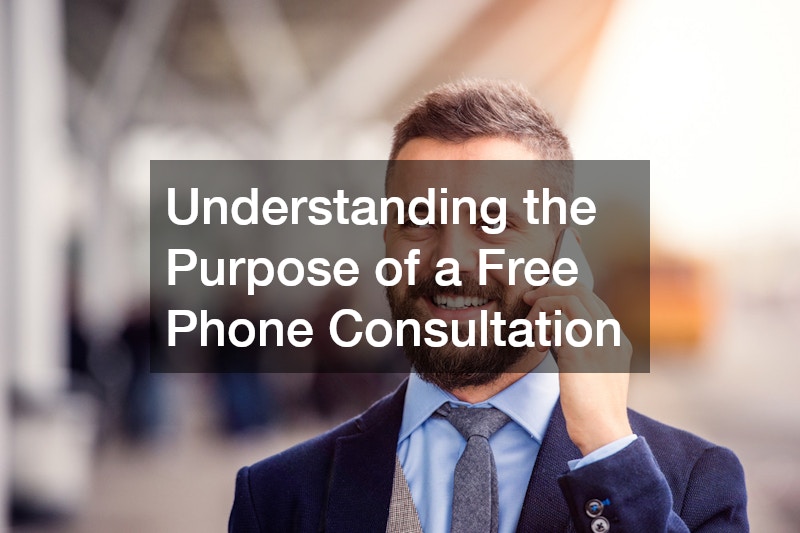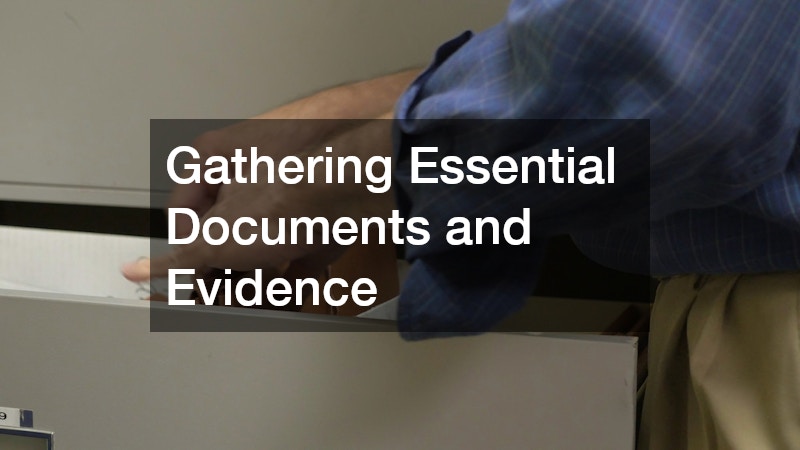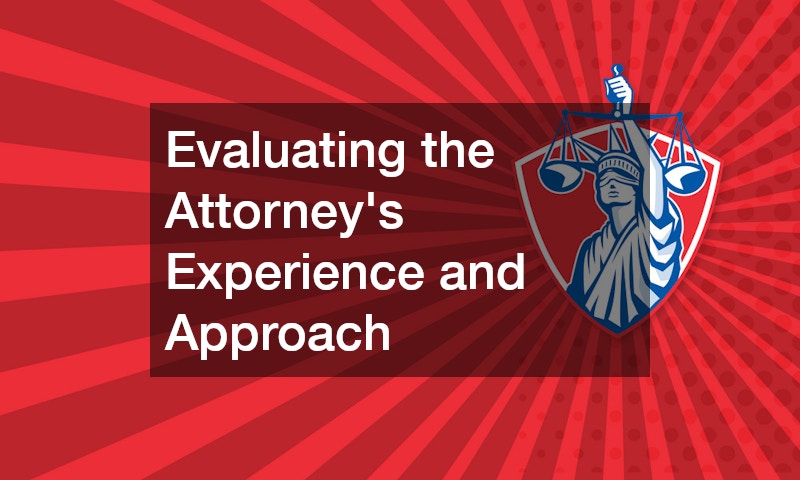Scheduling a free phone consultation with an attorney is often the first step toward resolving a legal issue, but many people don’t realize how valuable that initial conversation can be. It’s a chance to better understand your situation, receive preliminary guidance, and determine whether the attorney is a good fit for your needs. By preparing in advance and knowing what to expect, you can make the most of your time and gain a clearer sense of your legal options. A consultation isn’t just about sharing details—it’s about building a foundation for effective communication and future representation.
Taking the time to plan ahead ensures that you’ll approach the conversation with confidence and purpose. Whether you’re seeking advice for a personal matter, a business issue, or something in between, being organized allows you to cover the most important points and ask informed questions. The more prepared you are, the easier it will be for the attorney to evaluate your case and provide meaningful feedback. Understanding the structure and purpose of a free consultation helps set realistic expectations and allows you to start your legal journey on the right foot.

- Understanding the Purpose of a Free Phone Consultation
- Preparing Key Details About Your Legal Situation

- Gathering Essential Documents and Evidence
- Knowing What Questions to Ask During the Call

- Understanding Attorney-Client Confidentiality
- Discussing Fees, Payment Options, and Expectations

- Evaluating the Attorney’s Experience and Approach
- Taking Notes and Reviewing Key Takeaways
- Comparing Consultations Before Making a Decision
- Knowing the Next Steps After Your Consultation
Understanding the Purpose of a Free Phone Consultation
Before your consultation begins, it’s important to understand why law firms offer these calls in the first place. A phone consultation gives potential clients an opportunity to discuss their situation briefly, get an overview of possible legal options, and learn more about how the attorney approaches similar cases. It’s not meant to replace formal legal representation, but rather to help you decide whether hiring the attorney would be a good fit. This conversation also allows the attorney to determine whether your case aligns with their expertise and whether they can effectively assist you.
For example, if you’re dealing with an injury caused by an accident, speaking with a personal injury attorney during your phone consultation can help you better understand your potential claim. They can explain what evidence might be needed, what steps typically follow, and whether your case has merit. Knowing the purpose of the consultation prevents unrealistic expectations and ensures that you use the time efficiently. It’s about establishing clarity and direction, not receiving immediate legal solutions.
Preparing Key Details About Your Legal Situation
Preparation is key to getting the most value from your consultation. Before the call, take time to outline the main facts of your case, including dates, names, and any relevant documents. Try to keep your explanation concise but detailed enough for the attorney to get a clear picture of what happened. This preparation helps the conversation flow smoothly and allows the attorney to provide more targeted advice. Having your thoughts organized also prevents you from forgetting important details once the discussion begins.
If your case involves a sensitive personal matter like the end of a marriage, preparing properly before your free phone consultation with a divorce lawyer is especially important. They will need accurate information about your situation—such as financial details, living arrangements, or custody concerns—to give meaningful feedback. The more precise and organized your information is, the better your chances of getting relevant guidance from the attorney. Preparation not only saves time but also helps you feel more confident when discussing potentially emotional topics.
Gathering Essential Documents and Evidence
Having the right documents ready before your free phone consultation can make a major difference in how productive the call is. Attorneys rely on facts and evidence to evaluate potential cases, so the more supporting materials you can provide, the clearer their understanding will be. This might include contracts, emails, photos, receipts, or official records—anything that helps establish the details of your situation. Even though you might not be able to share every document over the phone, being able to summarize the contents and reference them during your discussion can help the attorney determine the best next steps.
For instance, if you are seeking advice related to custody arrangements, preparing documents that outline your current parenting schedule, court orders, or communication history can be helpful. During your free phone consultation, attorneys who handle family law services will use this information to better understand your circumstances and recommend a strategy that fits your needs. Organizing and reviewing your materials before the call ensures that you can explain your case clearly and make a strong impression from the start.
Knowing What Questions to Ask During the Call
Many people approach consultations unsure of what to ask, but preparing thoughtful questions in advance is one of the best ways to make your call more effective. The goal of a free phone consultation is not only to share information but also to gain insight into your legal options and what working with the attorney will look like. You might ask about their experience with similar cases, their general strategy, and what steps you should take next. Asking clear questions demonstrates your commitment to resolving the issue and helps you decide whether the attorney’s approach aligns with your goals.
For example, if you are facing criminal charges, coming prepared with specific questions for local criminal lawyers can give you a better understanding of what to expect. You might ask about possible defense strategies, timelines, or potential outcomes. These types of questions allow the attorney to tailor their advice to your unique situation while helping you determine whether they have the experience and communication style you’re looking for. The more prepared your questions are, the more confident you’ll feel about moving forward.
Understanding Attorney-Client Confidentiality
Before your consultation, it’s natural to wonder how much you can safely share during the conversation. Fortunately, most consultations are protected by confidentiality rules, which means that the information you provide cannot be disclosed or used against you. This allows you to speak openly and honestly about your situation without fear of judgment or exposure. Understanding this principle helps you feel more comfortable discussing sensitive details and ensures that you can provide accurate information to the attorney.
This is particularly important in cases involving criminal charges, financial concerns, or personal matters. For instance, if your free phone consultation involves bail bond experts, you can rest assured that the information you share will remain confidential. These professionals rely on discretion and professionalism to handle cases that may involve sensitive or urgent details. By understanding attorney-client confidentiality before your consultation, you can communicate freely and focus on finding the best legal strategy for your case.
Discussing Fees, Payment Options, and Expectations
One of the most practical parts of any free phone consultation is the discussion about legal fees and payment structures. While the consultation itself is typically complimentary, understanding how the attorney bills for ongoing representation is essential. Legal fees can vary depending on the complexity of the case, the attorney’s experience, and the area of law involved. Asking about billing methods—such as hourly rates, contingency fees, or flat fees—helps you prepare financially and prevents any surprises later. Openly discussing expectations around payment ensures transparency and builds trust from the start.
For example, if your legal matter involves securing release or representation for someone facing charges, the attorney may coordinate with a bail bondsman to discuss payment logistics or related legal services. During your phone consultation, asking about payment timelines, potential additional costs, and available options for financial flexibility will give you a clearer picture of the overall process. Having this discussion early helps you plan your budget and ensures that both you and the attorney are on the same page before moving forward.
Evaluating the Attorney’s Experience and Approach
A key goal of your consultation is to determine whether the attorney is the right fit for your situation. Beyond their legal knowledge, you’ll want to assess their communication style, problem-solving approach, and level of professionalism. An attorney’s tone, responsiveness, and ability to explain complex legal concepts in plain language can tell you a lot about how they’ll handle your case. The phone consultation gives you a firsthand opportunity to evaluate how comfortable you feel working with them and whether their approach aligns with your expectations.
For instance, if your situation involves issues related to bail or pretrial proceedings, you might find it helpful to speak with a local bail bond agency that regularly collaborates with attorneys. They can help you understand what kind of legal support might be required and what experience would best fit your needs. Evaluating the attorney’s past cases and asking how they handle communication can also help you gauge reliability and effectiveness. Taking this step ensures you’re not just hiring someone qualified but someone you can trust to represent your best interests.
Taking Notes and Reviewing Key Takeaways
During your phone consultation, you’ll likely receive a lot of important information in a short amount of time. Taking notes throughout the call ensures that you don’t miss critical details about your case, potential next steps, or legal advice. These notes can help you remember specific recommendations, track which attorneys you’ve spoken with, and compare responses later if you schedule multiple consultations. Writing down your impressions also helps you evaluate whether you felt comfortable, supported, and confident during the discussion.
For individuals or business owners exploring opportunities or partnerships, this approach is especially beneficial. For example, if you’re speaking with a venture capital firm or attorney specializing in business law, documenting the conversation can help you analyze the guidance you received and determine whether it aligns with your goals. Reviewing your notes after the consultation allows you to reflect on what stood out and what areas might need follow-up clarification. Keeping organized records of your consultations ensures you stay informed and make well-reasoned decisions moving forward.
Comparing Consultations Before Making a Decision
After completing your initial calls, it’s important to take time to compare the different attorneys you’ve spoken with. Every lawyer brings their own style, level of experience, and approach to handling cases, so reviewing what you learned from each free consultation helps you identify the best fit. Consider factors such as communication style, clarity of explanations, responsiveness, and how well the attorney understood your needs. Comparing consultations ensures that you’re not rushing your decision and that you’re selecting representation based on both expertise and comfort.
For individuals navigating complex legal or business situations, this step can be especially valuable. For instance, if you’re an entrepreneur seeking legal advice for your company, comparing how different attorneys discuss risk management or business structure can reveal which one is most knowledgeable about your industry. Some may focus more on contracts, while others emphasize growth and compliance. Evaluating multiple consultations allows you to confidently choose the attorney who aligns best with your goals, priorities, and communication preferences.
Knowing the Next Steps After Your Consultation
Once your consultation ends, it’s essential to understand what comes next. The attorney will likely outline the following steps if you decide to move forward, such as signing an engagement agreement, gathering documents, or scheduling a follow-up meeting. Taking immediate action after your free consultation helps keep your case or inquiry moving efficiently. Even if you decide not to hire that attorney, use the information you gained to refine your search and identify the type of legal support you truly need.
For example, if your situation involves property, investment, or development matters, your consultation may include discussions about commercial buildings for sale or related real estate contracts. Knowing the next steps—like scheduling an appraisal, reviewing agreements, or signing authorization forms—ensures that you stay organized and proactive. Following through promptly on the attorney’s recommendations keeps your case on track and demonstrates your commitment to resolving the matter effectively.
A phone consultation with an attorney is more than a simple conversation—it’s the first step toward understanding your legal situation and finding the right professional to guide you through it. This initial discussion provides valuable insights into your case, clarifies your options, and allows you to evaluate how comfortable you feel with each attorney’s communication style and approach. By preparing in advance, asking thoughtful questions, and taking notes during the call, you can make the most of this opportunity and ensure that no detail is overlooked.
It’s also important to remember that this process is as much about evaluating the attorney as it is about gathering information. Each consultation gives you the chance to compare expertise, assess professionalism, and decide who you trust to handle your matter. Whether you’re dealing with a personal issue, a business concern, or a more complex legal challenge, careful preparation and thoughtful evaluation can make all the difference in finding the right fit.
Ultimately, your free phone consultation sets the stage for your next steps—whether that means hiring an attorney, seeking additional information, or refining your legal strategy. Taking the time to prepare, listen, and reflect ensures that your decision is informed, strategic, and aligned with your goals. With the right preparation and understanding, this brief conversation can lead to lasting clarity, direction, and peace of mind as you move forward in your legal journey.
